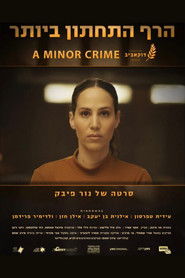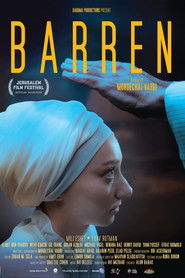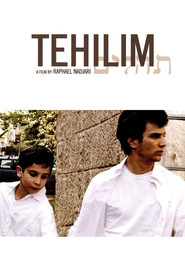detail profile ilanit ben yaakov
Peran Yang Di Mainkan Ilanit Ben-Yaakov
 2020 Corona era A journalist with an...
2020 Corona era A journalist with an...Farewell Column 2023
2020. Corona era. A journalist with an opinion column who receives hateful messages and threats on his cell phone tries in vain to reach his autistic son who lives in a hostel. His daughter went to protest in Balfour and is not answering the phone. He and his wife go to look for her at the demonstration and try to repair their relationship.
 With the aid of four actors...
With the aid of four actors...A Minor Crime 2023
With the aid of four actors in a rehearsal room, filmmaker Nur Fibak lays open the police investigation and court proceedings against the man who had molested her, revisiting the case as it unfolded from the moment she decided to seek justice. The film opens a unique window into the workings of the Israeli criminal justice system in sexual offense cases. Behind closed doors, during the cross-examination, everything is permitted, including asking invasive questions, doubting the woman on the witness stand, and forcing her—that same traumatized child, now grown up—to experience a second kind of abuse.
 Mira Segal wakes up screaming one...
Mira Segal wakes up screaming one...Inertia 2015
Mira Segal wakes up screaming one morning to discover that her husband has disappeared. The police open a Missing Person file and advise her to wait. As weeks turn into months, Mira continues to search for him while exploring her own desires and the guilt of not wanting him back.
 Meduzot the Hebrew word for Jellyfish...
Meduzot the Hebrew word for Jellyfish...Jellyfish 2007
Meduzot (the Hebrew word for Jellyfish) tells the story of three very different Israeli women living in Tel Aviv whose intersecting stories weave an unlikely portrait of modern Israeli life. Batya, a catering waitress, takes in a young child apparently abandoned at a local beach. Batya is one of the servers at the wedding reception of Keren, a young bride who breaks her leg in trying to escape from a locked toilet stall, which ruins her chance at a romantic honeymoon in the Caribbean. One of the guests is Joy, a Philippine chore woman attending the event with her employer, and who doesn't speak any Hebrew (she communicates mainly in English), and who is guilt-ridden after having left her young son behind in the Philippines.

 A childless young ultraorthodox couple faces...
A childless young ultraorthodox couple faces... A family in Jerusalem is torn...
A family in Jerusalem is torn...